
Biomedical writer Aimee Cunningham is on her second tour at Science News. From 2005 to 2007, she covered chemistry, environmental science, biology and materials science for Science News. Between stints Aimee was a freelance writer for outlets such as NPR and Scientific American Mind. She has a degree in English from the University of Michigan and a master’s degree in science journalism from New York University. She received the 2019 Award for Excellence in Science and Medical Journalism from the Endocrine Society for the article "Hormone replacement makes sense for some menopausal women."

Trustworthy journalism comes at a price.
Scientists and journalists share a core belief in questioning, observing and verifying to reach the truth. Science News reports on crucial research and discovery across science disciplines. We need your financial support to make it happen – every contribution makes a difference.
All Stories by Aimee Cunningham
-
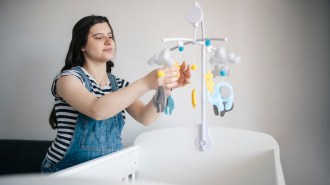 Health & Medicine
Health & MedicineWomen who’ve had breast cancer can safely pause treatment for pregnancy
Hormone therapy cannot be taken during pregnancy. A new study is reassuring for women who’ve had breast cancer and want to try for a baby.
-
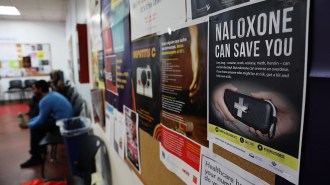 Health & Medicine
Health & MedicineFentanyl deaths have spiked among U.S. children and teens
Wider access to naloxone, which reverses the deadly effect of fentanyl, is key as more children are exposed to the opioid, experts say.
-
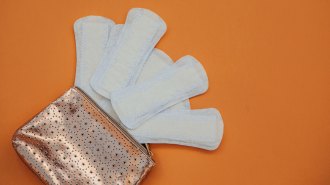 Humans
Humans‘Period’ wants to change how you think about menstruation
Kate Clancy offers fascinating science and history about the uterus and menstruation in her book, Period: The Real Story of Menstruation.
-
 Health & Medicine
Health & Medicine50 years ago, air pollution was linked to more reports of animal bites
Scientists spent decades tying air pollution to health and behavior problems. Now, there’s more evidence that dirty air influences aggression in animals.
-
 Health & Medicine
Health & MedicineMaternal deaths in the U.S. keep climbing
New U.S. data show that as maternal deaths rise, a large gap between the maternal mortality rate of Black women compared with white women persists.
-
 Health & Medicine
Health & MedicineMy mammogram revealed I have dense breasts. What does that mean?
Nearly half of U.S. women have dense breasts. A new FDA rule makes notification of breast density national. Here’s the scoop on why.
-
 Neuroscience
Neuroscience‘Mommy brain’ doesn’t capture how the brain transforms during pregnancy
During the transition to motherhood, there's more going on than “momnesia,” neuroscientists argue. The brain changes to prep for the job of caregiving
-
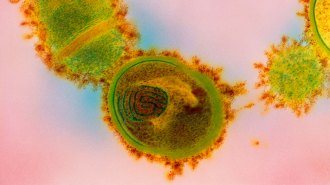 Health & Medicine
Health & MedicineToo much of this bacteria in the nose may worsen allergy symptoms
Hay fever sufferers have an overabundance of Streptococcus salivarius. The mucus-loving bacteria boost inflammation, causing an endlessly runny nose.
-
 Health & Medicine
Health & MedicineHDL ‘good’ cholesterol isn’t always good for heart health
High levels of HDL cholesterol don’t appear to protect against heart disease, while harm from low levels may depend on race, a study reports.
-
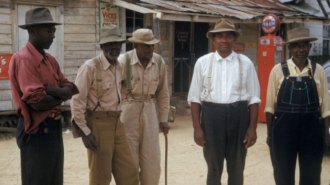 Health & Medicine
Health & MedicineMedical racism didn’t begin or end with the syphilis study at Tuskegee
Racism that fueled the syphilis study still permeates the U.S. health care system, causing disparities in access to medical care and health measures.
-
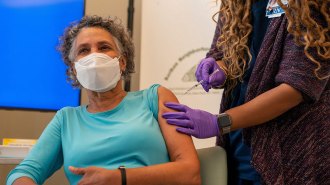 Health & Medicine
Health & MedicineHow 4 major coronavirus tools impacted the pandemic in 2022
During the third year of the pandemic, young kids got vaccines, a new booster shot came along, the use of at-home tests soared and Paxlovid became widely available.
-
 Health & Medicine
Health & MedicineBrief bursts of activity offer health benefits for people who don’t exercise
Non-exercisers who had brief bouts of vigorous day-to-day activity saw a reduced risk of death comparable to that of people who exercise regularly.